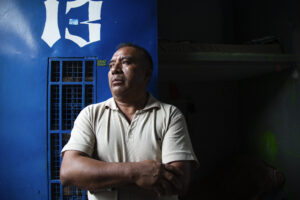
In Pakistan’s borderlands, Pashtun women transform digital austerity and Internet blackouts into solidarity
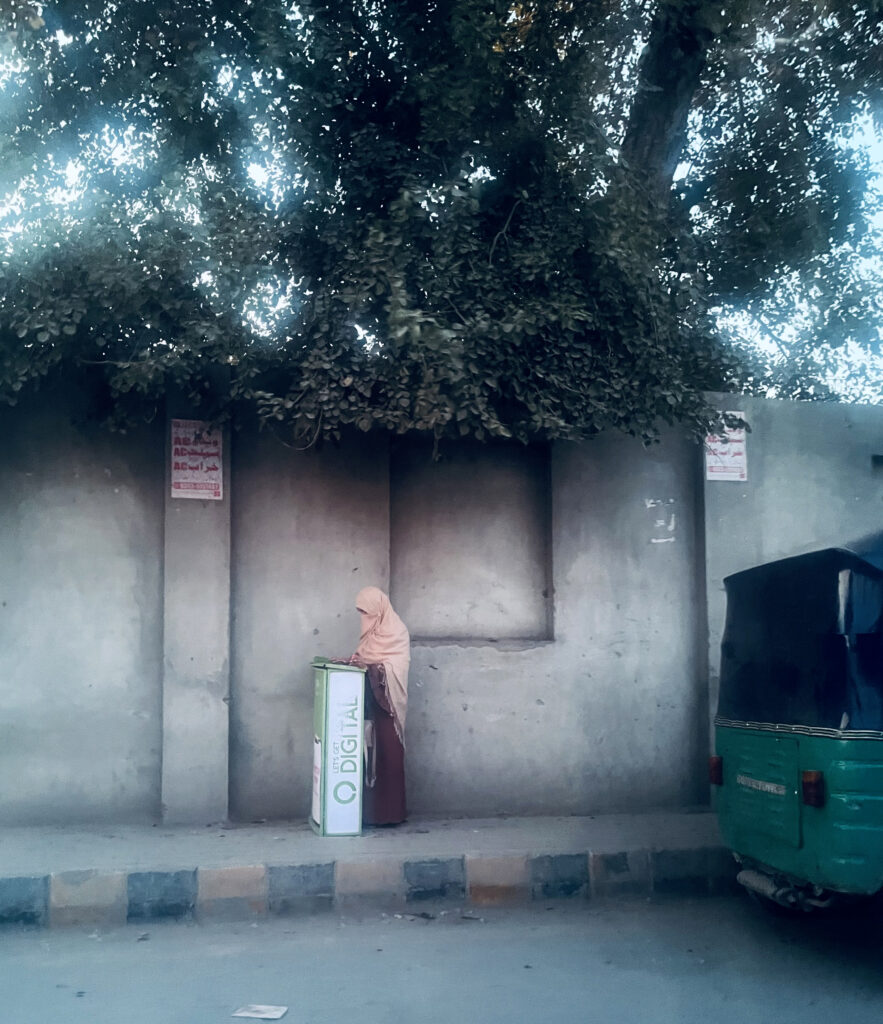
As soon as I settled onto the plush red carpet, Gul Noor Bibi* handed me a cup of steaming qahwa and a small bowl of gurr (jaggery), a staple of Pashtun cuisine and routine. I tried to refuse the sugar, but she shook her head firmly. “You have to eat something sweet,” she said. “Otherwise, you forget life still has any sweetness in it.” Displaced from Pakistan’s erstwhile Federally Administered Tribal Areas (FATA), a borderland wedged against the country’s contested border with Afghanistan, her family now shares a house in Hayatabad, Peshawar, trying to stitch together a life.
The now ad hoc head of her household, comprising mainly of women and children, Gul Noor was one of the first to agree to speak with me as I landed in Peshawar to begin my fieldwork on Internally Displaced Pashtun women. The men, she explained, move between their ancestral village and the city, to farm and protect their land, making women the everyday decision-makers.
Pointing at the carpet that we were sitting on, Gul Noor shared that her dream was to fully carpet her kitchen as she had seen in some Afghan refugee households. Using my half-Punjabi identity as conversational bait, she went on to describe how Punjabis wait for a “special” occasion to use their finest crockery or clothes, unlike Pashtuns. “No, we like to live in the moment.”
I arrived in Peshawar expecting to document how displacement affects daily life for the community. Instead, I discovered something more complex: a story of resilience and adaptation, where families maintained continuity through constant reinvention, particularly in the digital sphere, where staying connected has become a top priority.
Among Pashtun communities in Pakistan and Afghanistan, living well and maintaining their roots through abundant hospitality is not a luxury but a moral duty encoded in Pashtunwali, the indigenous ethical system that shapes the community’s social life. This code of conduct is based upon the tenets of melmastia (hospitality), nang (honor), and badal (reciprocity), universal to all Pashtuns; it demands that a guest must be honored with the best things one has to offer, regardless of circumstances. Scarcity is never an excuse for stinginess for the Pashtuns; sharing is an act of dignity and even an act of self-actualization.
Today, this community, governed by an ancient code of generosity and reciprocity, faces a brutal irony. In an era where internet access determines survival, livelihood, and opportunity, where digital connection shapes both present circumstances and future possibilities, the Pakistani state has imposed digital austerity that directly contradicts the principles of melmastia at the heart of Pashtun identity.
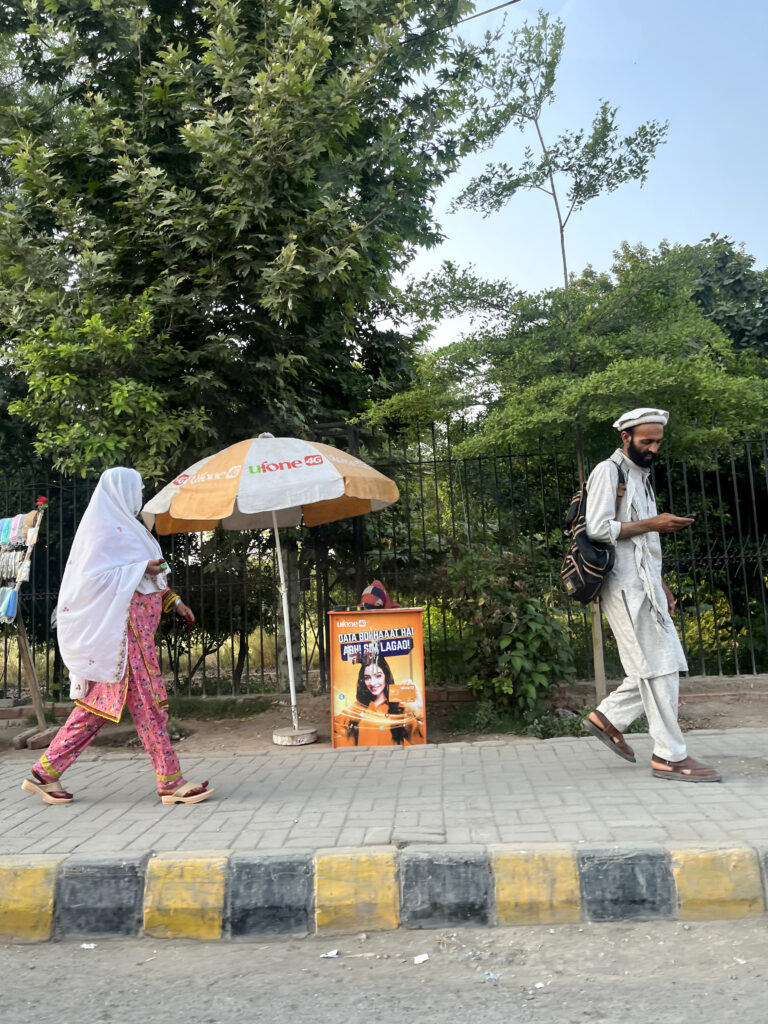
For Gul Noor, the internet is not a luxury but a necessity: it is how she stays connected to her husband and sons in the tribal belt, ensures her daughters receive an education in Peshawar, and maintains a sense of control over a life shaped by displacement and uncertainty. For the community, then, sharing a hotspot, troubleshooting signal issues, or lending a phone have all become the new acts of melmastia, reimagined for the 21st century.
Precarious digital access disproportionately affects women like Gul Noor, who bear the invisible labor of keeping families tethered to safety and opportunity. Preparing meals or crafting comfort from scarcity, their labor has long underpinned what Pashtunwali defines as honor and dignity, despite being largely unacknowledged. Today, this invisible labour plays out in the digital realm too. Though internet access may seem like a shared household resource, women often take on the responsibility of managing it, not only because they are expected to care for others but because their own access is the most precarious. Structural inequalities mean that men often have personal devices, mobility, and more reliable connections through work or public spaces while women negotiate shared phones, limited data, and restricted movement. As a result, they become both the users and stewards of connectivity, ensuring not just their own access but often that of children, siblings, or elders. Digital melmastia, like its traditional counterpart, is labor-intensive, feminized, and frequently invisible.
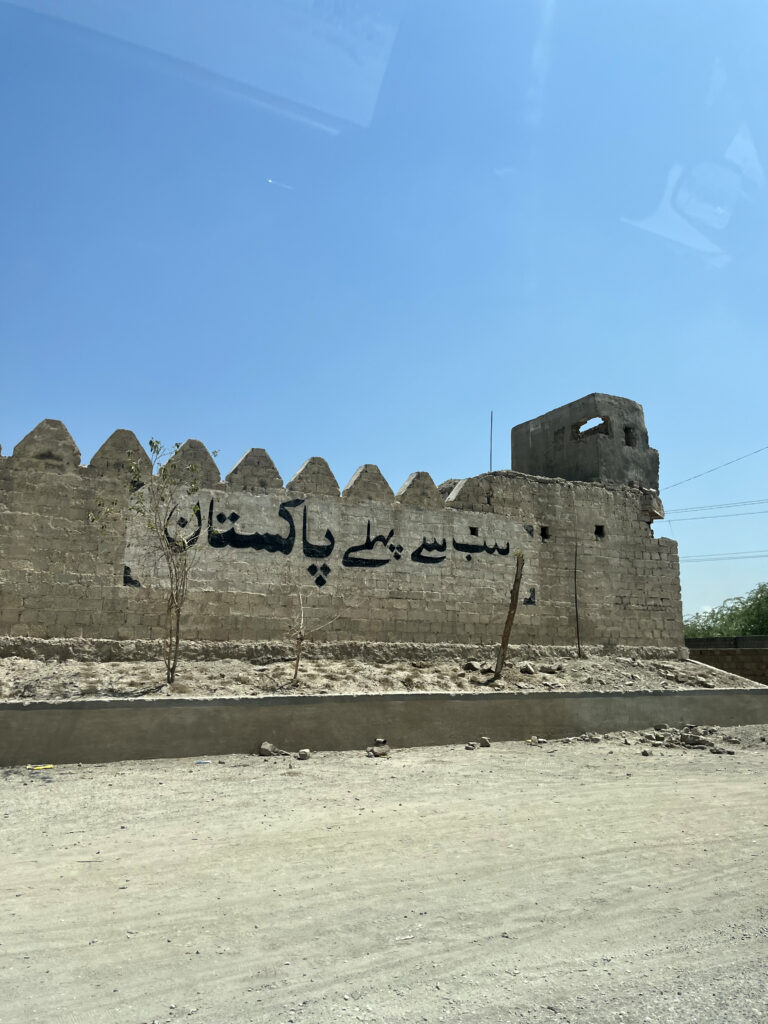
Enduring colonial legacy of austerity
Since Pakistan’s independence, the province of Khyber Pakhtunkhwa and its borderlands have endured prolonged austerity rooted in colonial legacies, strategic neglect, and militarized governance. Established as a “ buffer to the buffer zone” to barricade the British Empire against external threats, the Tribal Belt or the Federally Administered Tribal Areas (FATA) functioned as a semi-autonomous constellation of different Pashtun tribes spread across the contested Pakistan-Afghanistan border.
The FATA region was governed by a hybrid regime of local leaders and British-appointed political agents. The resultant draconian law called the Frontier Crimes Regulations (FCR) was continued till 2018 by the Pakistani government despite the country’s independence from the British Empire in 1947. This extrajudicial status calcified FATA as a zone of exception, locally known as ‘Illaqa-e-ghair’ (loosely translated as Outside Territory or the Frontier). Its exceptionality, isolation, and geographical location made it ideal for many proxy wars by Western powers, with the Mujahideens fighting against the Soviet Union soon leading to “Talibanization” of the area. Despite waves of military funding during the Cold War and later the War on Terror, civilian infrastructure and social services were systematically underfunded and outrightly harmed in this region.
Following several state-run military operations to curb militant insurgencies in the area, KP was merged with the FATA in 2018. The government had promised FATA’s mainstreaming but delivered little. In the years since, austerity has only deepened, with conditions imposed by the International Monetary Fund further leading to decreased public spending just as women’s health, education, and income programs were beginning to take root.
A 2022 UNDP survey in the Merged Areas found that internet connectivity remained a major hurdle, with nearly 89 percent of respondents reporting no access at all. Basic infrastructure was equally strained: on average, households received just 3.4 hours of electricity per day, with only slight variation across the seven districts it surveyed. In this long arc of state-imposed austerity, the rationing of internet access is only a new modality of “cutting corners”.
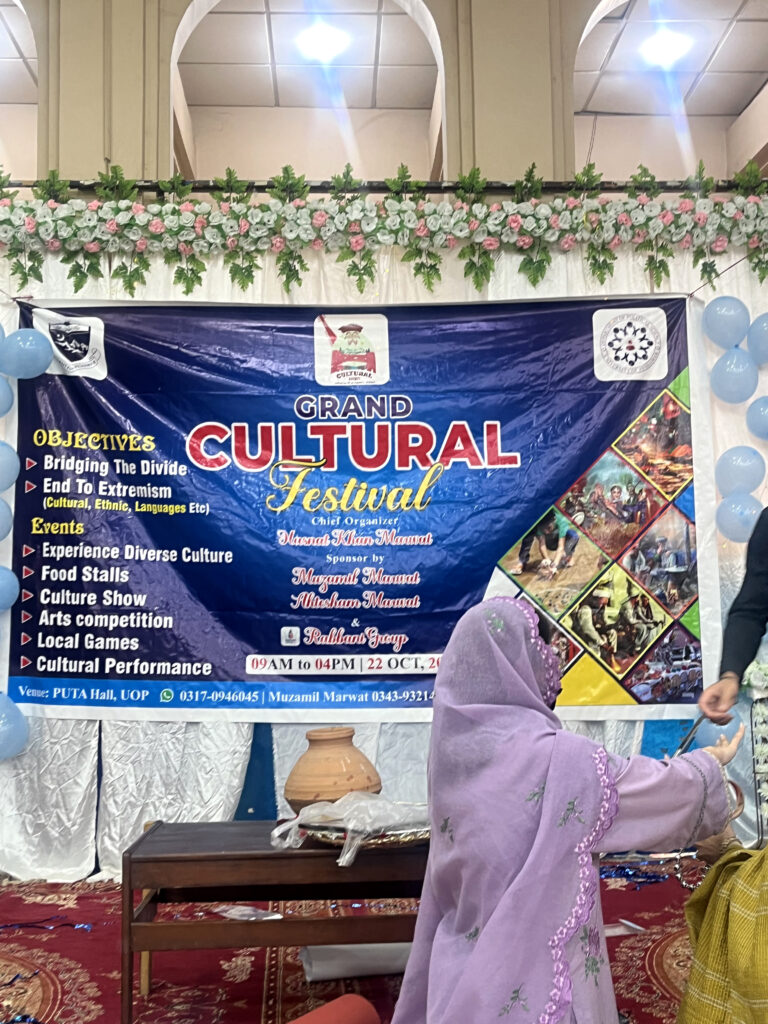
In December last year, Pakistan’s Parliamentary Secretary for the Cabinet Division publicly advised citizens to “use the internet less” and “reserve it for important purposes.” To many, the remark was baffling, even absurd. Yet, beneath its surface lay the architecture of a larger political project: the normalization of deprivation. Disguised as an isolated policy recommendation, the statement came after two major incidents of internet throttling and outright internet suspension in KP and the federal capital of Islamabad, which I experienced during my fieldwork in Peshawar.
A few weeks earlier, in October 2024, mobile and internet services were abruptly cut off across Khyber and parts of Peshawar. The blackout coincided with the Pashtun Qaumi Jirga, a peaceful gathering focused on community rights. The government had recently declared one of its conveners, the Pashtun Tahaffuz Movement or PTM, a proscribed organization. The result: attendees were digitally silenced, unable to livestream or even message their families. Ironically, the suspension began the day before “National Resilience Day,” meant to commemorate strength after the 2005 earthquake, which killed tens of thousands. The signal never fully returned. Weeks later, in Hayatabad, Gul Noor was still out of touch with her husband and sons.
Then, in November, as the leading opposition party Pakistan Tehreek-e-Insaf planned a protest march from KP to Islamabad, the government responded with lockdowns and blockades using shipping containers, as well as another digital blackout. For several days, phones didn’t work. Students couldn’t submit assignments, workers couldn’t get paid, and patients missed medical appointments. Across the city, my female interlocutors were thrown back into digital silence, left to guess when the world might come back online.
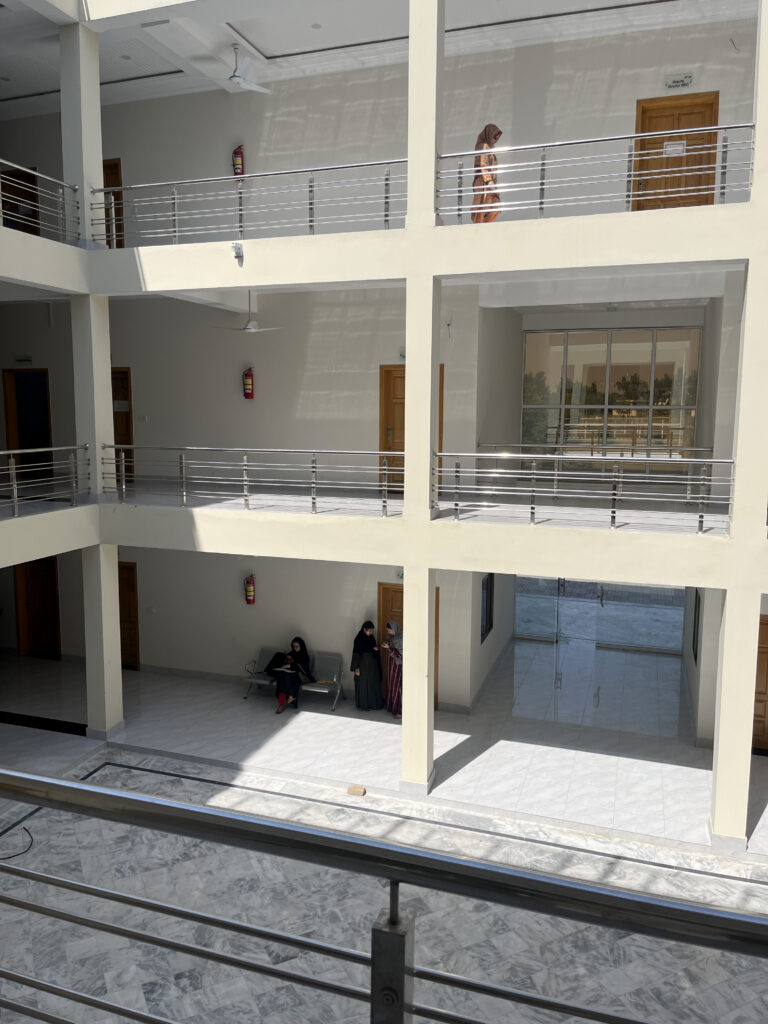
One of my interlocutors, Maryam, a budding graphic designer from Khyber District, now lives in a women’s hostel on the University of Peshawar campus. Her family relocated after repeated military operations destabilized the region and shuttered local job markets. In Peshawar city, Maryam supports herself by freelancing on global platforms, but the hostel has no reliable broadband and mobile data is prohibitively expensive.
She often walks to a tea stall on campus where the internet connection is more reliable and accessible. Once, a five-minute delay in submitting client revisions cost her a week’s contract. “They think I’m unreliable,” she said, “but how do you explain to someone in Canada that your entire city just lost signal?” For Maryam, the internet is crucial to stay afloat in a system that offers her little else.
Ingenuity in resilience
The language of “important purposes” invoked by government officials is a chilling euphemism. Who decides what is “important?” For a young woman in Swat attending an online medical course, the internet is vital. For a designer in Bannu, freelancing on global platforms, connectivity is crucial to her survival. For a father in Peshawar trying to speak with his daughter studying abroad, WhatsApp is a lifeline. This rationing of opportunity, masked as necessity, betrays the deep structural inequities at play.
These informal digital networks, mostly built and maintained by women, go far beyond coping strategies. They have become small infrastructures of care, created in spaces where state support is absent.
Out of abandonment, however, ingenuity takes root. In women’s hostels across Peshawar, young students navigate digital deprivation not through protests but quiet coordination and everyday resilience. Shared mobile hotspots are passed from bed to bed. In one women’s hostel in University Town, Peshawar, four students pool their money to pay for a portable internet device, costing approximately USD 15 per month. As they cannot leave the hostel after 4 pm due to the curfew, a restriction their male counterparts do not face, this device becomes indispensable.
Others have created offline libraries on their phones, screen-recording lectures or downloading PDFs during brief periods of stable signal, slowly piecing together fragile but vital archives of knowledge. Arooj, a third-year medical student from Swabi in KP, stays up late to catch YouTube tutorials by doctors abroad. “I can’t afford prep courses,” she told me. “So, I download whatever I can when the signal is good.”
These small, quiet acts carry with them a kind of digital melmastia – a hospitality of bandwidth – where care, access, and generosity are extended under conditions of deprivation. For these women, the access to internet is not a luxury. It is a form of resistance born from the values they carry with them, even as the state looks away. These informal digital networks, mostly built and maintained by women, go far beyond coping strategies. They have become small infrastructures of care, created in spaces where state support is absent.
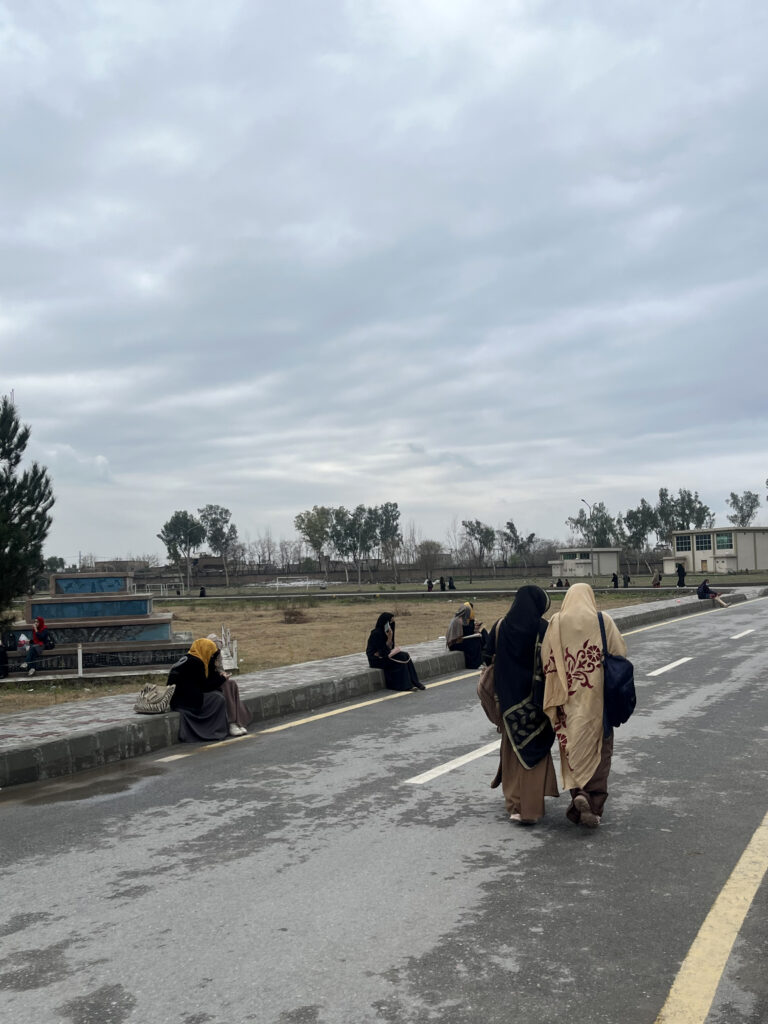
In one WhatsApp group, originally meant for sharing academic updates, a single message about depression transformed the thread into a support network. Voice notes, breathing tips, and wellness links began to circulate, and eventually, the group created a folder called Dil ka Hal (translated as matters of the heart), filled with memes, poems, and late-night check-ins.
These acts of connection are more than resourcefulness. They reflect an insistence on learning, growing, and showing up for each other amid hardship. It’s about how Pashtun women stretch limited means to build informal infrastructures of care. In a region that has faced decades of militarization, neglect, and economic constraint, women bear the invisible labor of sustaining abundance under structural scarcity and cultural constraints. Through shared phones, WhatsApp groups, and collective troubleshooting, they reimagine austerity not as a limit but as a challenge to overcome.
In Peshawar, I also met two women medical students at an international cafe franchise, where they had not come for the coffee but for the reliable Wi-Fi. They came there every day to study without interruption. Hailing from relatively privileged backgrounds, they could frequent the cafe, an option most of their peers did not have. The women’s families allowed them to go because the café was inside the heavily guarded cantonment area, which they considered safe.
These may not be acts of resistance in the traditional sense. But they are acts of refusal: to be invisibilized and isolated. The qahwa and gurr of Gul Noor in Hayatabad is more than a drink. It is an offering, a resistance, and a reminder that while bandwidth in KP may be bordered, connections persist.
*All names used in this article have been changed to protect the identities of the women.


